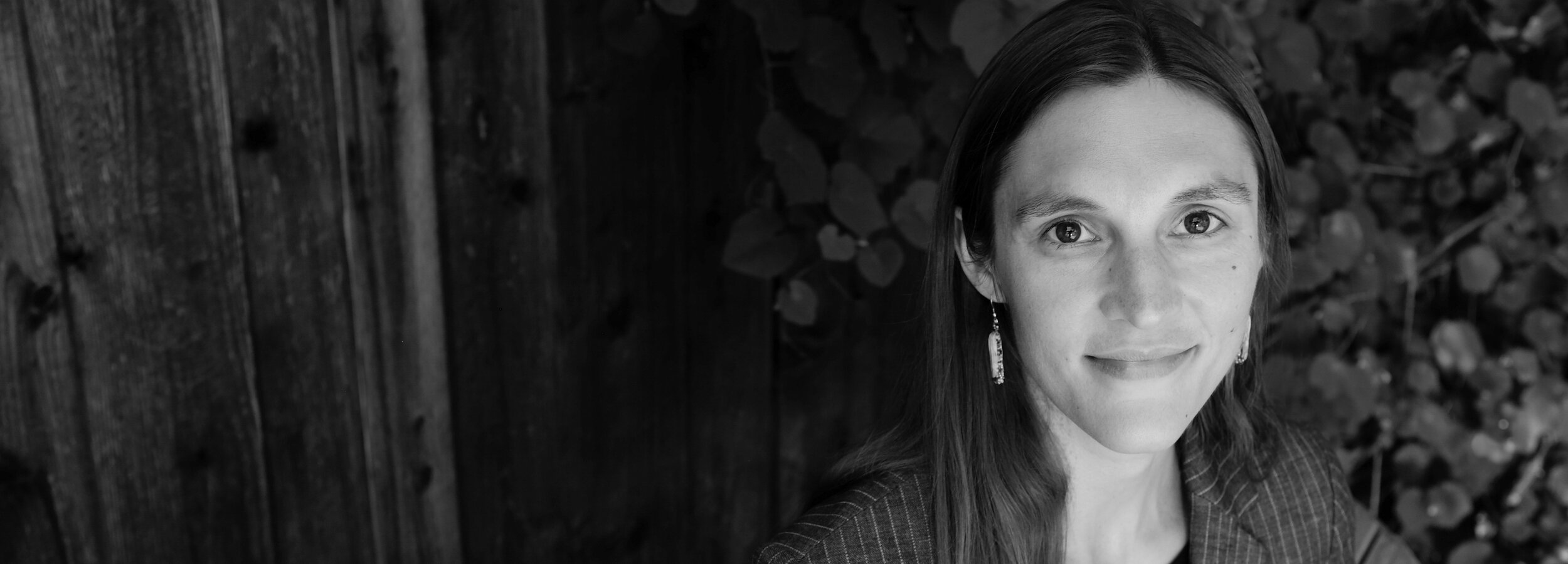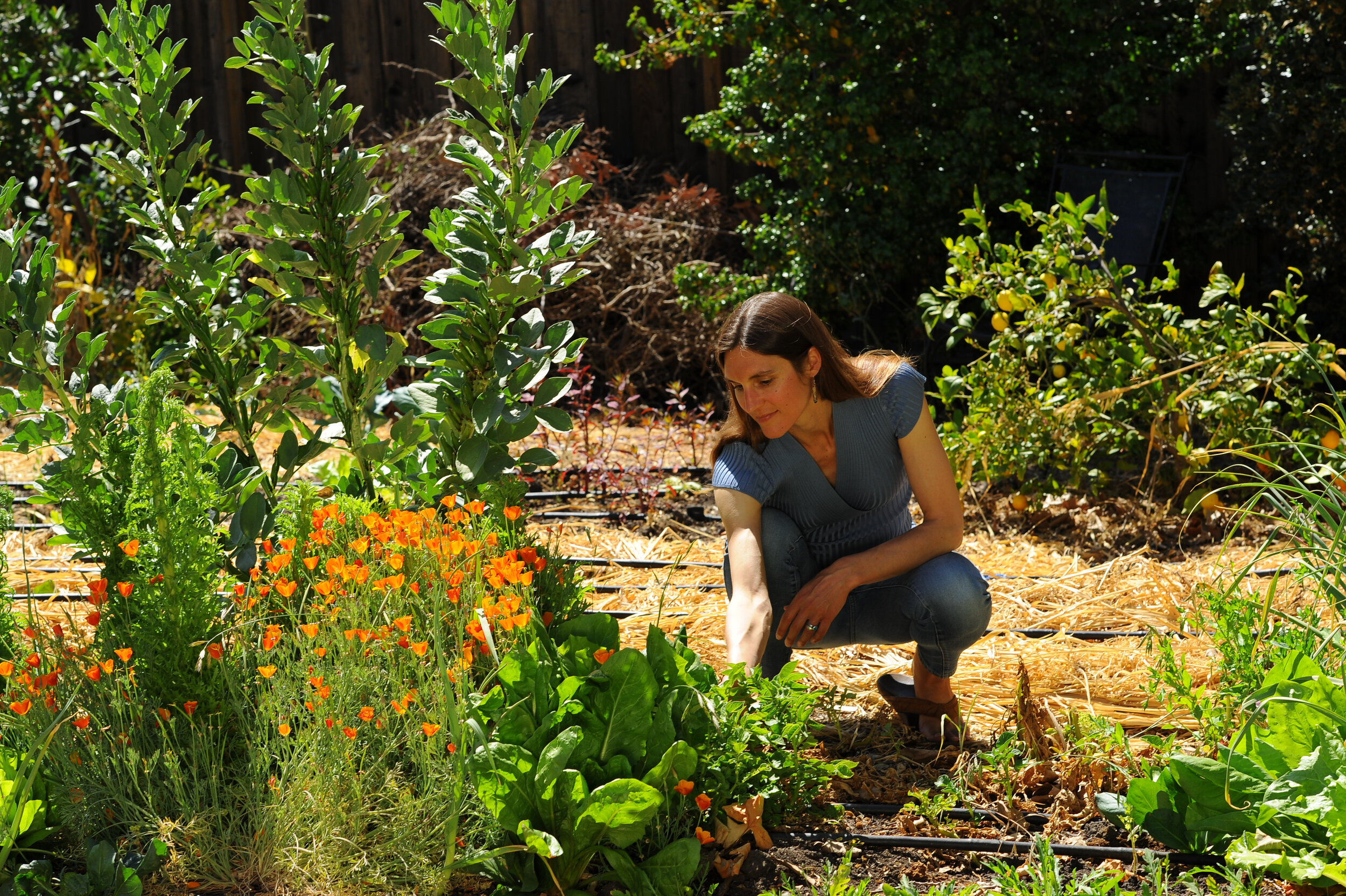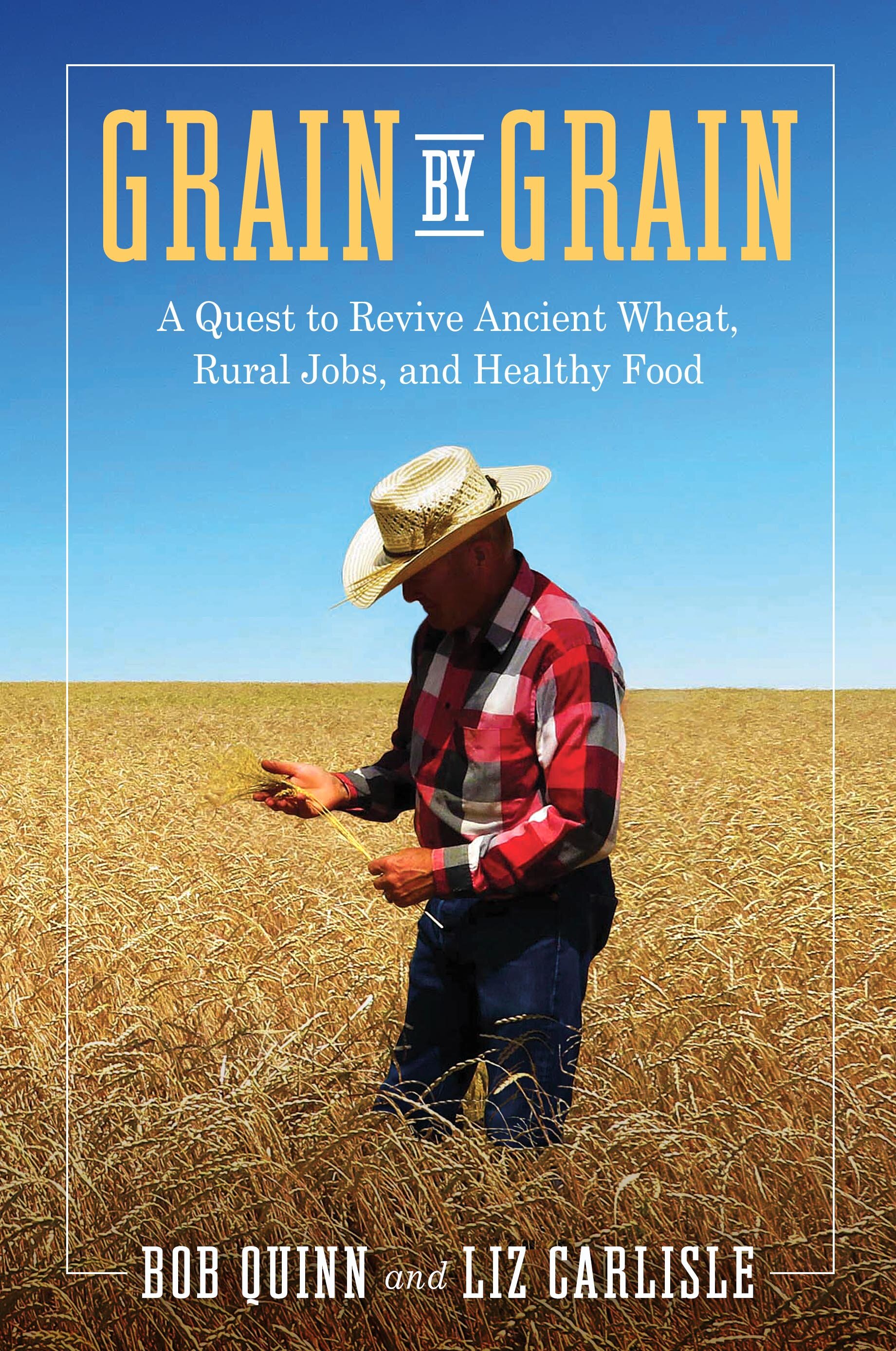
Author. Agroecologist.
Associate Professor of Environmental Studies at UC Santa Barbara
Liz Carlisle is an Associate Professor in the Environmental Studies Program at UC Santa Barbara, where she teaches courses on food and farming. Born and raised in Montana, she got hooked on agriculture while working as an aide to organic farmer and U.S. Senator Jon Tester, which led to a decade of research and writing collaborations with farmers in her home state. She has written three books about regenerative farming and agroecology: Lentil Underground (2015), Grain by Grain (2019, with co-author Bob Quinn), and most recently, Healing Grounds: Climate, Justice, and the Deep Roots of Regenerative Farming (2022). She is also a frequent contributor to both academic journals and popular media outlets, focusing on food and farm policy, incentivizing soil health practices, and supporting new entry farmers. She holds a Ph.D. in Geography, from UC Berkeley, and a B.A. in Folklore and Mythology, from Harvard University. Prior to her career as a writer and academic, she spent several years touring rural America as a country singer.
Healing Grounds (2022)
“In Healing Grounds, Liz Carlisle makes the compelling case that soil can save us from climate catastrophe, but only if the global indigenous communities who originated soil stewardship practices lead the way. In a tone that is both authoritative and humble, Carlisle convinces the reader that the same extractive forces that wrest carbon from the soil, also yank earth stewards from the land. Further, there can be no ecosystemic redemption without addressing colonialism. Healing Grounds is a refreshingly truthful account of real roots of climate chaos and the authentic path to healing."
~ Leah Penniman, Author of Farming While Black and Co-Founder, Soul Fire Farm
A powerful movement is happening in farming today—farmers are reconnecting with their roots to fight climate change. For one woman, that’s meant learning her people’s history to help bring back the buffalo. For another, it’s meant preserving forest purchased by her great-great-uncle, among the first wave of African Americans to buy land. Others are rejecting monoculture to grow corn, beans, and squash the way farmers in Mexico have done for centuries. Still others are rotating crops and recycling nutrients, using techniques their ancestors developed thousands of years ago in Asia.
These farmers are restoring native prairies, nurturing beneficial fungi, and enriching soil health. While feeding their communities and revitalizing cultural ties to land, they are steadily stitching ecosystems back together and repairing the natural carbon cycle. This, Healing Grounds shows, is the true regenerative agriculture – not merely a set of technical tricks for storing CO2 in the ground, but a holistic approach that values diversity in both plants and people.
Cultivating this kind of regenerative farming will require reckoning with our nation’s agricultural history—a history marked by discrimination and displacement. And it will ultimately require dismantling power structures that have blocked many farmers of color from owning land or building wealth. The task is great, but so is its promise. By coming together to restore these farmlands, we can not only heal our planet, we can heal our communities and ourselves.
Now Available as an Audiobook!
Grain by Grain (2019)
A compelling agricultural story skillfully told - Kirkus Reviews
“In the age of start-ups and tech crazes, it might seem counterintuitive to call something as ancient as grain ‘revelatory.’ Nevertheless, Bob Quinn’s quest to recapture the value of our food system through grain is just that—a revelation. Liz Carlisle and Bob Quinn have unlocked the key to kickstarting change—Grain by Grain is one big kernel of truth.” - Dan Barber, chef/co-owner, Blue Hill, and author of The Third Plate
“Farmer and plant biochemist Bob Quinn’s passionate story makes it impossible to go on farming (or eating) as usual. A must read for anyone who wants to understand why our food system is so unhealthy and how we can fix it.” - Daphne Miller, author of Farmacology: Total Health from the Soil Up
“Long before anybody heard the term ‘social enterprise,’ a few untrained businesspeople started small, unconventional companies to solve problems for their neighbors — and succeeded beyond their wildest dreams. This is the story of one such entrepreneurial effort, which demonstrates how a green economy rooted in regenerative organic agriculture and renewable energy can help rebuild struggling communities in rural America.” - Yvon Chouinard, founder of Patagonia, author of Let My People Go Surfing: The Education of a Reluctant Businessman.
Lentil Underground (2015)
Winner, Montana Book Award
Winner, Green Prize for Sustainable Literature
2017 University of Montana common read AKA "Griz Read."
The story of the Lentil Underground begins on a 280-acre homestead rooted in America's Great Plains: the Oien family farm. Forty years ago, corporate agribusiness told small farmers like the Oiens to "get big or get out." But twenty-seven-year-old David Oien decided to take a stand, becoming the first in his conservative Montana county to plant a radically different crop: organic lentils. Unlike the chemically dependent grains American farmers had been told to grow, lentils make their own fertilizer and tolerate variable climate conditions, so their farmers aren't beholden to industrial methods. Today, Oien leads an underground network of organic farmers who work with heirloom seeds and biologically diverse farm systems. Under the brand Timeless Natural Food, their unique business-cum-movement has grown into a million dollar enterprise that sells to Whole Foods, hundreds of independent natural foods stores, and a host of renowned restaurants.
From the heart of Big Sky Country comes this inspiring story of a handful of colorful pioneers who have successfully bucked the chemically-based food chain and the entrenched power of agribusiness's one percent, by stubbornly banding together.



